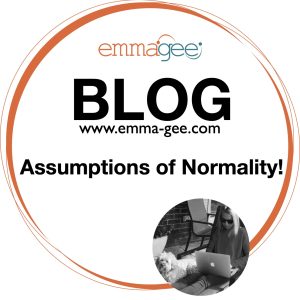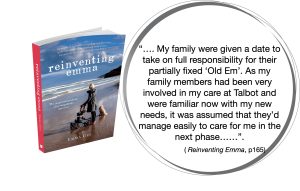 Although I thought that I had conquered the worst of my corneal graft complication, little did I know that my health was about to take another blow. This was also after I got covid, twice!
Although I thought that I had conquered the worst of my corneal graft complication, little did I know that my health was about to take another blow. This was also after I got covid, twice!
To cut a long story short, one day I unexpectedly found myself with horrific facial pain. Nauseating pain that was not ‘normal’. Convinced that it was due to my eye graft rejection, my dad took me to the eye hospital to get it seen to.
Whilst in the waiting room for 6 hours, I was in so much pain and discomfort. I couldn’t speak, open my eyes and I had the shakes. I was so reliant on my dad in that moment. He was encouraging me to drink water and speaking with the nurses on my behalf to find out how long it would take for me to be seen.
When I was finally seen by the doctor, I was told that my eye was fine and sent away; my gibberish interpreted by my dad and inability to give the eye contact or respond to his questions dismissed as ‘normal’. Yep, my eye was deemed fine, but my multiple symptoms just worsened over the next 24 hours.
Reluctantly after multiple covid tests, I was admitted to another hospital. It was here that the doctors put the entire picture together, and realised this was not ‘normal’ for me and after multiple diagnostic tests, diagnosed me with bacterial meningitis.
I was admitted to hospital for treatment which I’ll talk about in the coming blogs.
Had I known that these symptoms were not due to my eye graft, I would have gone straight to emergency. However, having had meningitis in 2018, I along with all my supports, assumed this was a once off illness and oblivious that I would be struck twice. These symptoms were very serious and needed to be treated as such.
Bacterial meningitis is a rare but serious infection of meninges (the membranes covering your brain and spinal cord). It must be treated as a medical emergency due to early diagnosis and treatment being vital. If untreated for too long, it can lead to brain damage, hearing loss, seizures and epilepsy.
So why did the first hospital just send me away? And why did I wait for 6 hours in the waiting room before being seen with such serious symptoms?
My view is that when the nurses saw me, they assumed I always required that amount of help; that I normally needed assistance to communicate and drink water, that I usually had seeing difficulties and that my shaking was part of my permanent disability. They never asked myself or my dad about how much of what I was experiencing was “normal” for me. Without this enquiry, it meant that I was at a much higher risk of further permanent damage.
What would have been a more helpful approach was for the nursing staff to ask my dad about my permanent disability to understand what “normal” was for me, and how “not normal” my current state was.
This deeper dive into understanding could have really helped me and my supports at that time.
Further, I speak about the impact of our ‘assumptions’ on other supports in my book. Numerous times throughout my recovery, my medical teams’ assumptions also negatively impacted my care. This was especially evident early in my discharge from rehab to my home environment. As medical background, it was ‘assumed’ that my family would know how to care for me. It was also ‘assumed’ that as an Occupational Therapist I would know what to expect. 
I write – “…. My family were given a date to take on full responsibility for their partially fixed ‘Old Em’. As my family members had been very involved in my care at Talbot and were familiar now with my new needs, it was assumed that they’d manage easily to care for me in the next phase…. “(Reinventing Emma, P165)
So, when you see others, it’s always important to be curious about what their “normal” is – ascertain from them or their supports how far away they are from that state. This can give you more information about how serious their treatment needs to be.
What is ‘normal’ for each person?
How can we elicit this information, so the person and their supports don’t need to withstand unnecessary procedures or difficulties based on our own assumptions?
What is really going on?